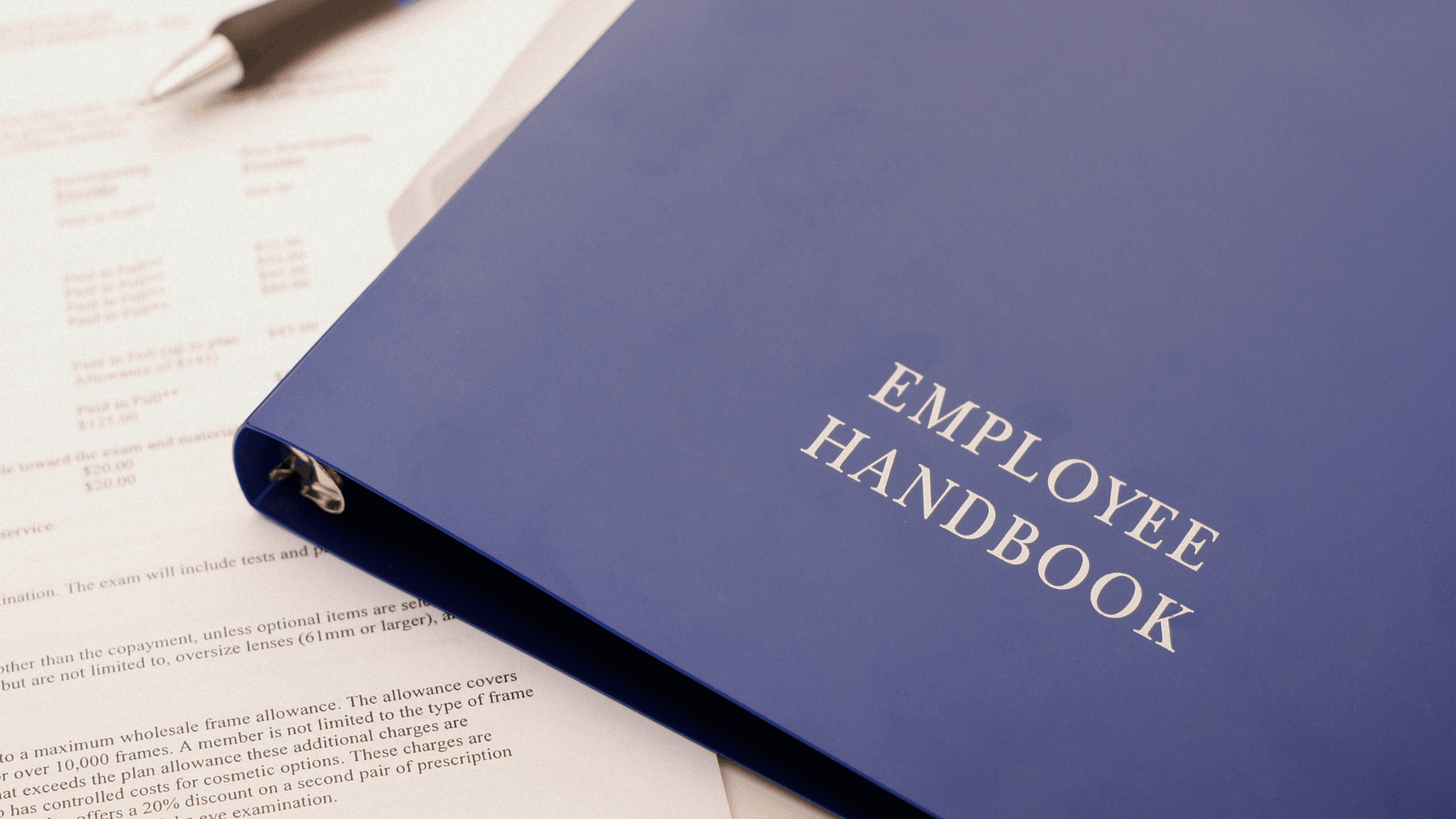Your employee handbook is more important than you may think. It’s not just a formality that you hand over to new hires – it’s a legal document that can either protect or expose your business to liability.
While it’s tempting to create your own handbook or use a free online template, overlooking your legal responsibilities can be a huge mistake.
Let’s explore seven critical reasons to get an employment lawyer involved in creating and reviewing your employee handbook.

1. Legal compliance is required
A generic employee handbook is unlikely to comply with all local, state, and federal laws. Someone who makes general templates might have good intentions, but in the absence of state-specific regulations, your handbook could be unenforceable. Worse, illegal clauses will open you up to lawsuits.
Inside your handbook is where you describe company policies, procedures, and employee expectations. Including clauses that don’t comply with labor law can put you at risk. Even if your handbook outlines terms that meet federal regulations, if it violates state law, it could be unenforceable. Whether you’re updating your employee handbook or creating one from scratch, get advice from an employment law attorney first.
2. Certain language can imply an employment contract
If you hire employees at-will and never have them sign an employment contract, the language in your handbook could unintentionally create a binding employment contract. This mistake can lead to wrongful termination claims later. To avoid this, your employee handbook should clearly state that employment is at-will. Passing it to an employment lawyer for review is recommended.
3. The wrong words can be considered discriminatory
Using vague language or failing to update outdated policies could lead to discriminatory practices even if that’s not your intention. It’s your responsibility to ensure your handbook complies with anti-discrimination laws. That’s easier said than done. Sometimes what seems like standard language might actually be perceived as discrimination. An experienced employment attorney will know exactly what to include and what to avoid so you don’t make this costly mistake.
4. Vague expectations can lead to legal trouble
If your handbook doesn’t clearly outline employee responsibilities, you’re opening the door to misunderstandings that can lead to lawsuits. When asking an employee to perform tasks that fall outside their documented responsibilities, and they push back, it becomes your word against theirs. That’s a dangerous position to get into.
For example, if there’s no written policy explaining how to request time off, use vacation days, or call in sick, misunderstandings are guaranteed. And when those misunderstandings escalate, courts often side with employees, especially when the employer can’t provide proof of the written policies that were violated.
5. Disciplinary procedures matter
If you describe a specific disciplinary procedure in your employee handbook, you’re legally required to follow that procedure to the letter. If you deviate and make exceptions for anyone, you’re opening yourself up to a discrimination lawsuit.
For example, you need to define the types of violations that will lead to immediate termination or put someone through a progressive disciplinary process. If your policy states employees will be terminated automatically after their third write-up for non-serious offenses, you can’t just terminate someone and skip the write-up process unless the offense qualifies for immediate termination as outlined in your policy. If you fire someone without following your own policy, they might sue you for wrongful termination.
6. Overtime mistakes are costly
Wage and hour violations can lead to expensive lawsuits and fines. Whether it’s a labor board complaint or a full-blown lawsuit, failing to comply with overtime laws can cost your business thousands.
Most states require employers to pay for all overtime worked, even if it wasn’t approved in advance. But if your handbook clearly states that working unauthorized overtime is grounds for termination, you can enforce the rules while staying compliant. An employment attorney can help you craft airtight language that protects your business from costly claims and clarifies expectations for your team.
7. Employees need to know their rights
An employee handbook should include both employer and employee rights, like policies on anti-harassment, anti-discrimination, drug and alcohol use, conflicts of interest, and more. However, you’ll also want to include an official procedure for reporting inappropriate conduct. Without this, you won’t have documentation to defend yourself if an employee claims they reported harassment and nothing was done.
A legal review is a solid investment to protect your business
Creating or updating your employee handbook without legal input is risky. By having your documents reviewed by an employment attorney, you can create clear expectations for your employees, ensure compliance, and protect your business against lawsuits.

Founder Dinis Guarda
IntelligentHQ Your New Business Network.
IntelligentHQ is a Business network and an expert source for finance, capital markets and intelligence for thousands of global business professionals, startups, and companies.
We exist at the point of intersection between technology, social media, finance and innovation.
IntelligentHQ leverages innovation and scale of social digital technology, analytics, news, and distribution to create an unparalleled, full digital medium and social business networks spectrum.
IntelligentHQ is working hard, to become a trusted, and indispensable source of business news and analytics, within financial services and its associated supply chains and ecosystems











